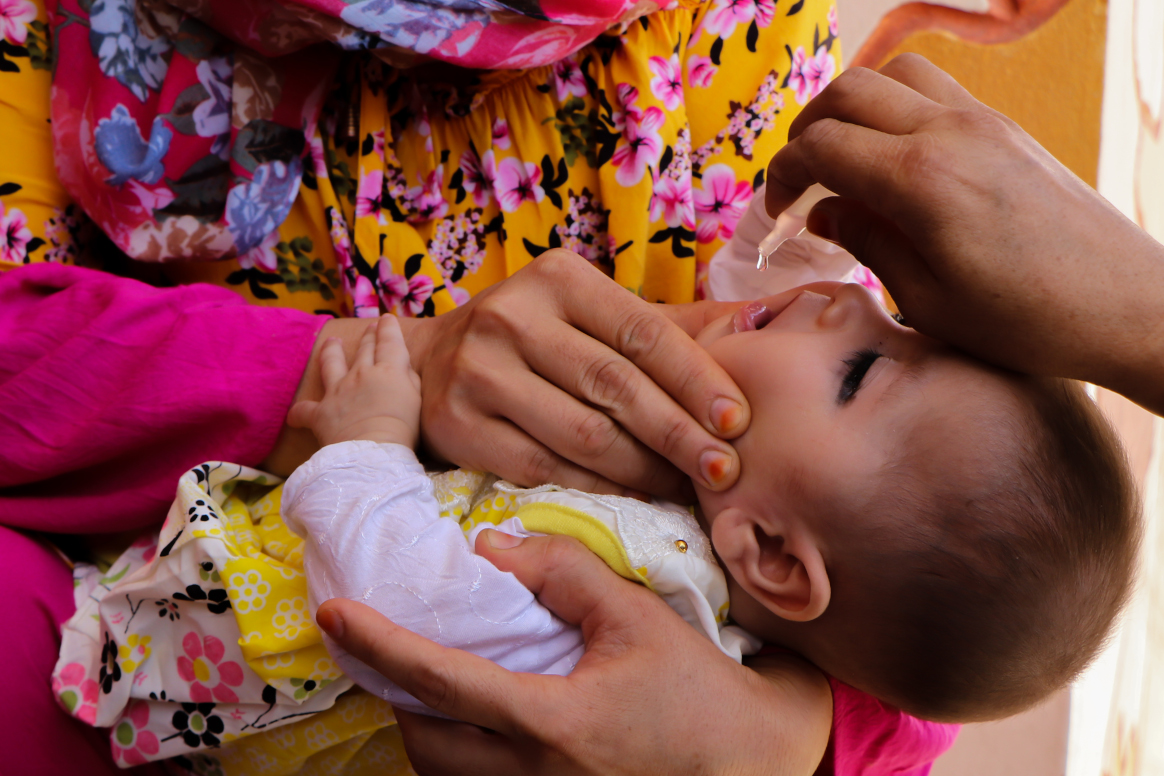The Global Polio Eradication Initiative (GPEI) welcomes the 24th report from the Independent Monitoring Board (IMB).
This report highlights the geopolitical shifts impacting all global health efforts, including the GPEI. The program agrees with the IMB that the reduction in historic donor support—if realized—will create new challenges. In response, the GPEI is identifying ambitious, operational shifts that will help countries fully leverage and align more limited resources to address the resurgence of wild poliovirus in the final endemic countries and counter longstanding barriers to reaching children with polio vaccines in subnational regions facing humanitarian crises.
The IMB rightly recognizes the challenges in Pakistan and Afghanistan that drove a surge in transmission in 2024. Each national program—alongside the GPEI Technical Advisory Group—has developed tailored strategies to address persistent risks and obstacles. This includes building trust with communities and frontline workers to address vaccine hesitancy, implementing tactics to reach children in hard-to-access areas, strengthening monitoring mechanisms, and continuing to collaborate closely with local authorities to strengthen cross-border coordination and disease surveillance efforts.
The GPEI agrees with the IMB’s emphasis on renewed political commitment and improved accountability measures to help facilitate rapid, high-quality outbreak response efforts. Regional planning and cross-border collaboration are critical to containing virus spread in outbreak countries. For example, a comprehensive Lake Chad Basin coordination plan has received support from seven key countries that aims to synchronize campaigns, enhance surveillance activities, and reach mobile and border populations. Countries in the Horn of Africa and Yemen are also taking concrete steps to intensify coordination to end protracted variant poliovirus spread in this bloc.
Integrating polio services with other health programs will help boost overall immunity and meet the broader health needs of communities now. In 2024, the GPEI’s integration efforts were strengthened, with more than 40% of campaigns delivering ‘pluses’ – other childhood vaccines, nutritional supplements, or other health interventions. The GPEI is also working with Ministries of Health and Gavi to boost IPV coverage and support country efforts to improve routine immunization and integrated delivery systems – a cornerstone of the eradication strategy.
To continue adapting to the financial landscape, the GPEI is making significant operational adjustments The program will work with even greater efficiency, prioritizing activities for smarter, more focused delivery that will reduce risk, protect progress, and reconcentrate eradication efforts in the highest-risk areas. An operational companion to the 2022-2029 Strategy will be announced in October 2025.
GPEI values the IMB’s ongoing oversight and its shared dedication to eradicating polio worldwide. The program is carefully reviewing each recommendation and will provide a comprehensive response. We will continue working closely with the IMB, affected countries, and partners to enhance the program’s effectiveness—strengthening immunization efforts, mainstreaming gender-sensitive approaches, refining disease monitoring, reinforcing health systems, and ultimately ensuring that no child is paralyzed by polio ever again.
